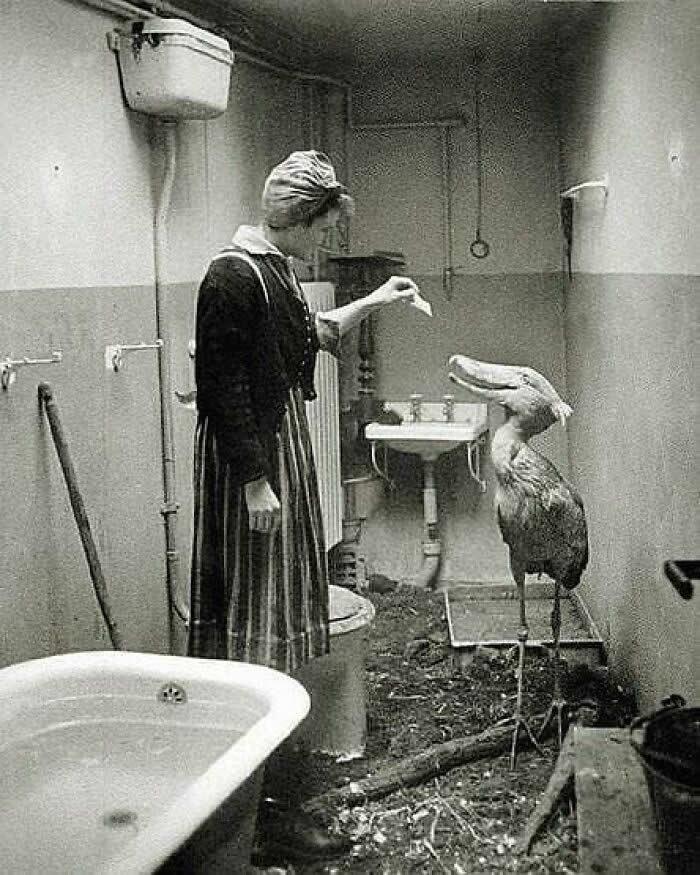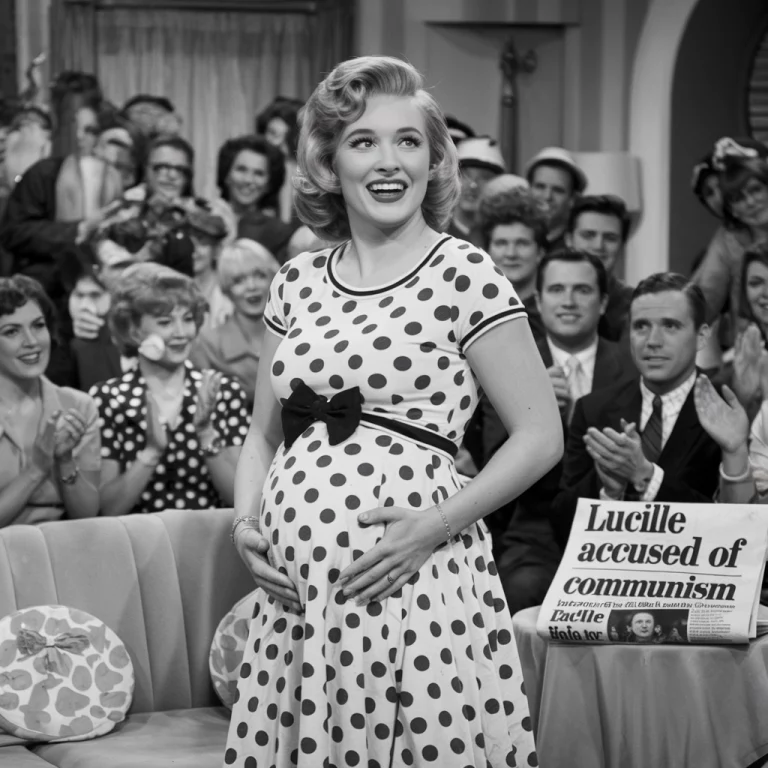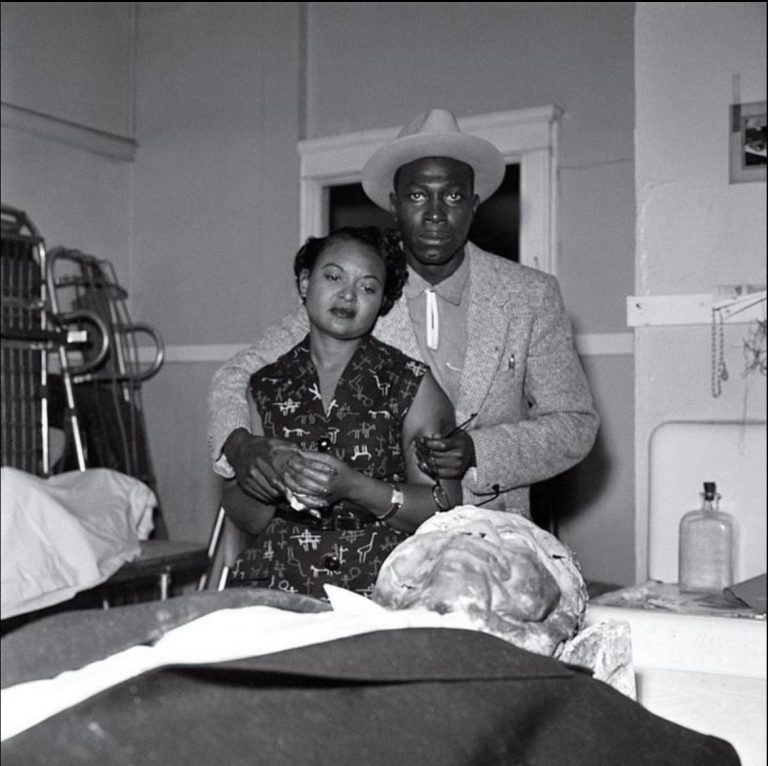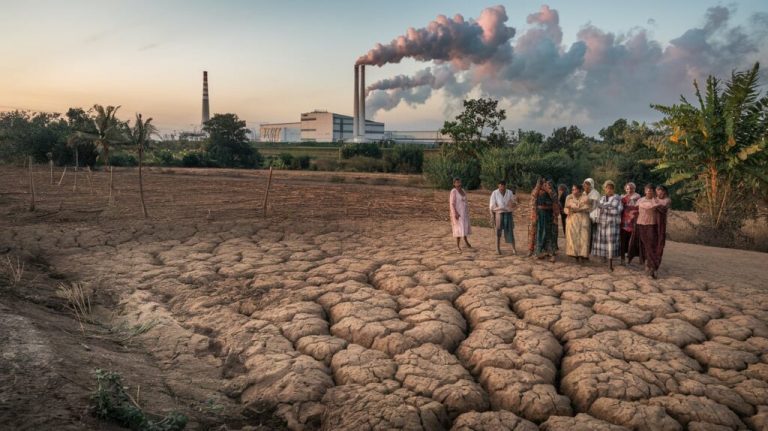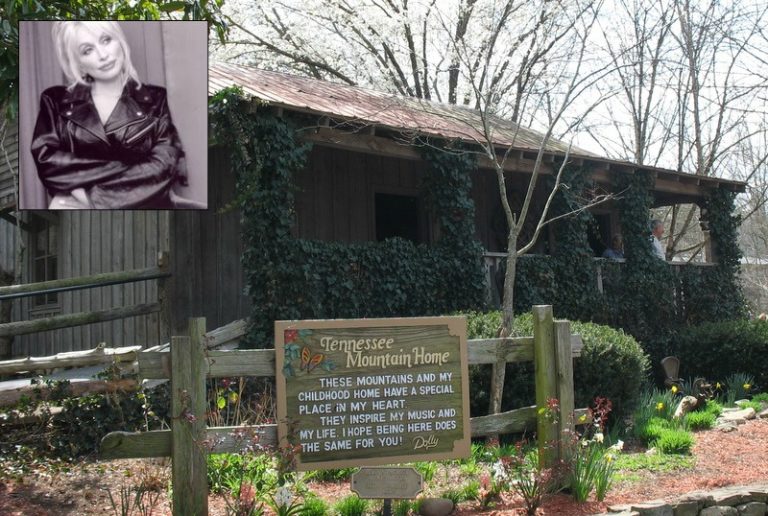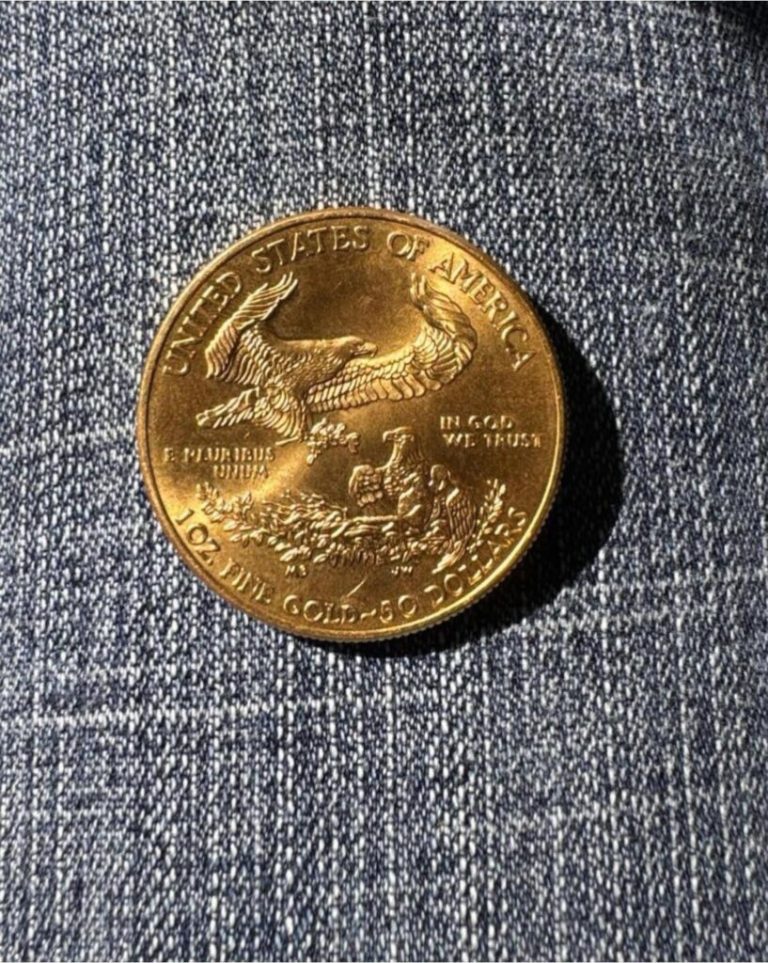Quiet Acts of Humanity During Wars: The Caretakers of WWII’s Forgotten Souls
For those who remember, or wish they could have.
War is made of noise—gunfire, marching boots, the grinding sound of metal and will. But what lingers longest, for some, are the moments that were almost silent.
Not victories. Not speeches. But quiet acts, done by people who had nothing to gain.
Not heroes in uniform. Just human beings, faced with impossible choices, choosing dignity instead of cruelty.
These are some of their stories.
The Medic Who Stayed Behind
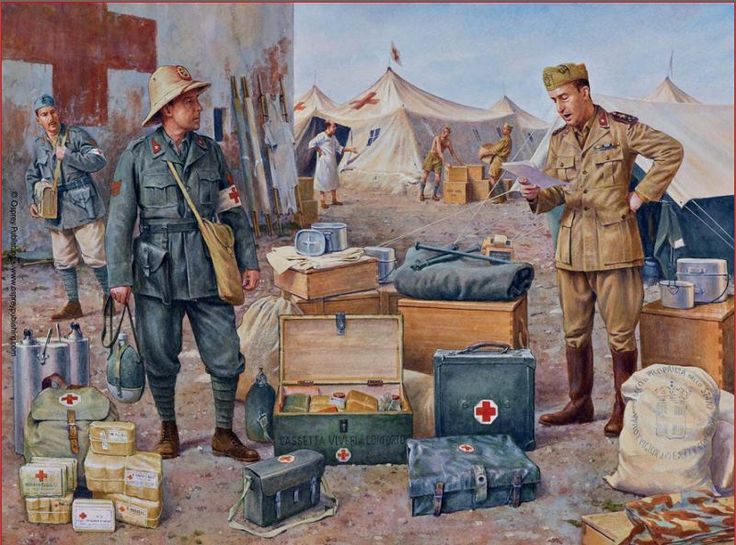
In the final days of World War II, as Allied forces pushed through Italy, the fighting grew chaotic. One American field medic—his name lost in reports, his actions not—volunteered to stay behind as his unit pulled out of a shelled village.
He was told to retreat. He didn’t.
Civilians were wounded. A few enemy soldiers too. He treated them all in the same basement with the same trembling hands. For nearly three days, he worked by candlelight, rationing morphine and water.
When the Allies returned, they found him unconscious from exhaustion, surrounded by people who had lived because one man refused to see sides.
He never gave interviews. His name was barely recorded. But a German nurse who survived later wrote, “That American soldier showed us what God must look like in war.”
Feeding the Enemy, One Bowl at a Time
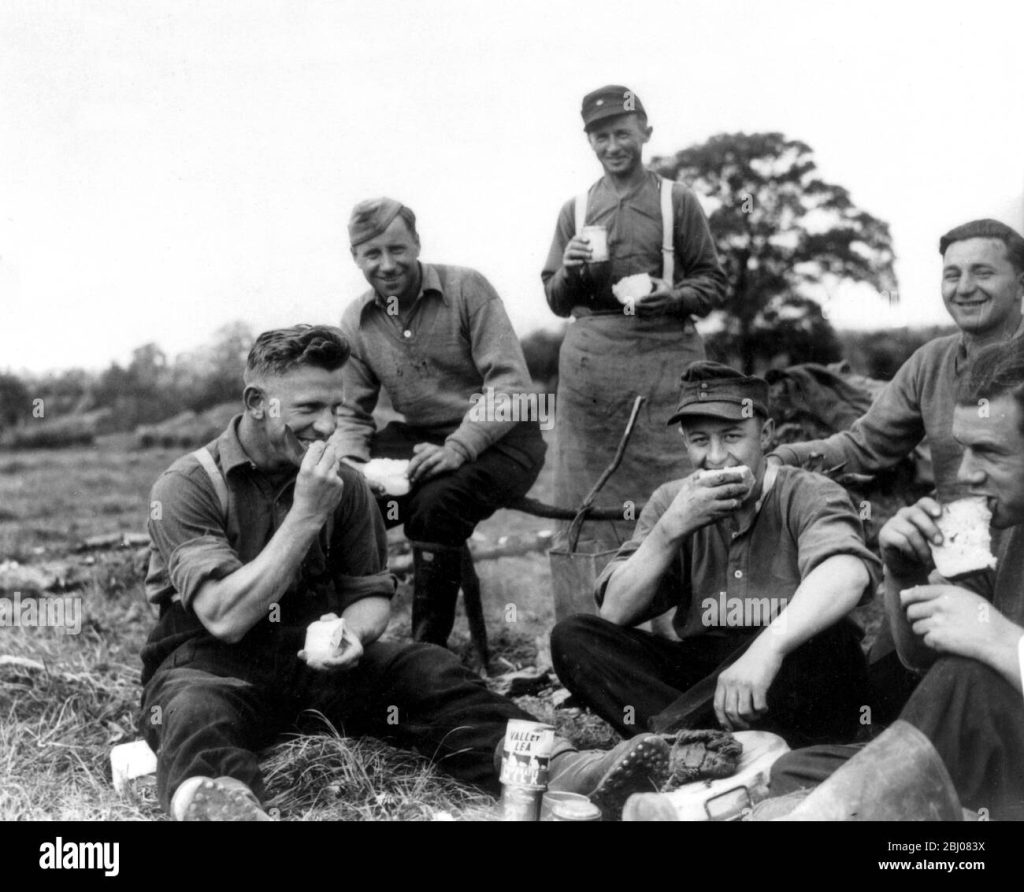
In rural France, one farmwife fed a German POW every evening through a hole in her barn wall.
She didn’t speak German. He didn’t speak French. But she saw how thin he was, working in the nearby field. So she began leaving out a bowl of soup and bread where he could reach it at night.
No one told her to. If caught, she might’ve been called a traitor.
She simply said: “He was someone’s son. And I had food.”
The war ended. He never returned. But for years after, her grandchildren remember how she’d quietly leave food for the stray cats—always in a chipped bowl, near that same spot.
A Grave Dug With Respect
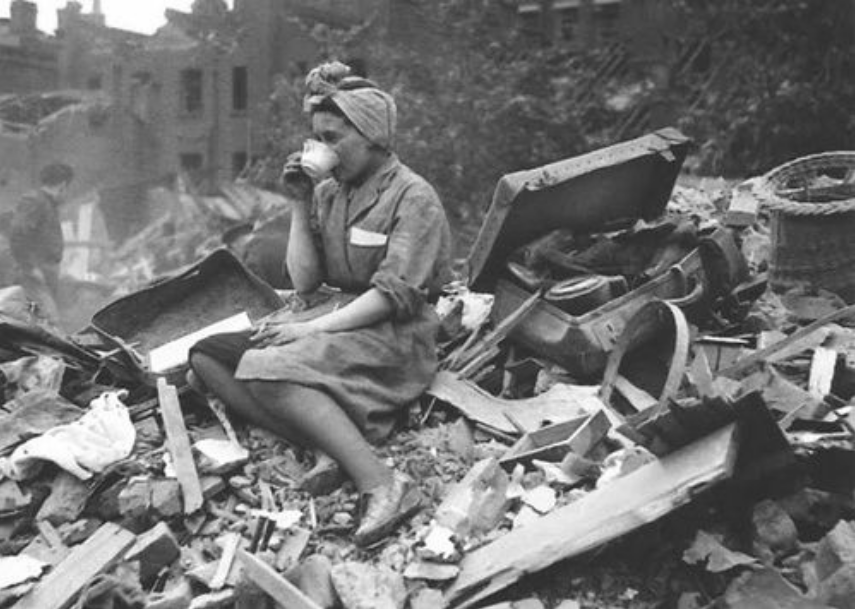
On the eastern front, a Polish villager named Marek buried the bodies left behind after a skirmish between Soviet and German troops.
No orders. No help.
Among them, a teenage German soldier—barely sixteen. Marek carved a rough cross from a fence post and wrote the word “Sohn” (son) on it.
A local priest scolded him. “They burned our homes,” the priest said. Marek just nodded and replied: “Yes. But he hadn’t yet.”
To this day, no official record marks that grave. Just a grassy field near the river, with a crooked cross that still stands.
The Girl With the Bandage

Warsaw, 1944.
During the Uprising, a teenage girl named Halina crawled out of a sewer shaft to find a wounded German soldier, barely conscious. The boy begged for water.
Halina didn’t answer. She simply pulled off her sleeve, tore it in half, and bound his leg.
A photographer captured the moment—blurry, unposed, raw.
Decades later, the man—once a soldier, now a grandfather—found her face in an old news clipping. He wrote a letter to Poland that ended with a single sentence:
“That day, she didn’t see an enemy. She saw someone in pain.”
A Cup of Tea, In the Rubble
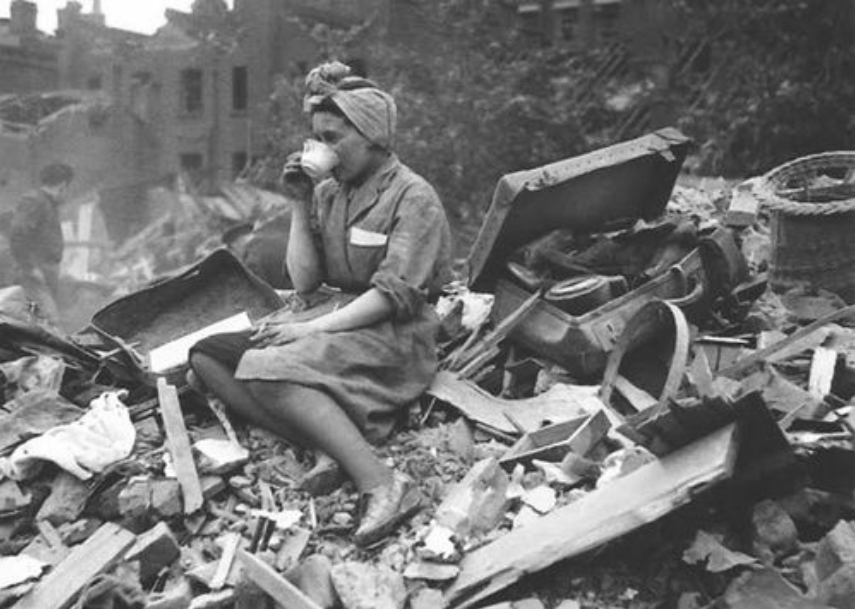
In London, during the Blitz, one local woman was known on her street for a strange habit: every time a bomb fell nearby, she’d grab her kettle and make tea—then walk it outside to whomever was closest to the damage.
Sometimes firemen. Sometimes soldiers. Sometimes the dazed and weeping.
She didn’t ask questions. She didn’t give speeches. She just poured, handed it over, and nodded once.
Her neighbors began calling her “The Steam Nurse.” Her name? Mrs. Clara Mays. Widowed. Two sons in the service. And a cupboard full of chipped teacups.
What the Camera Didn’t Show at Dachau
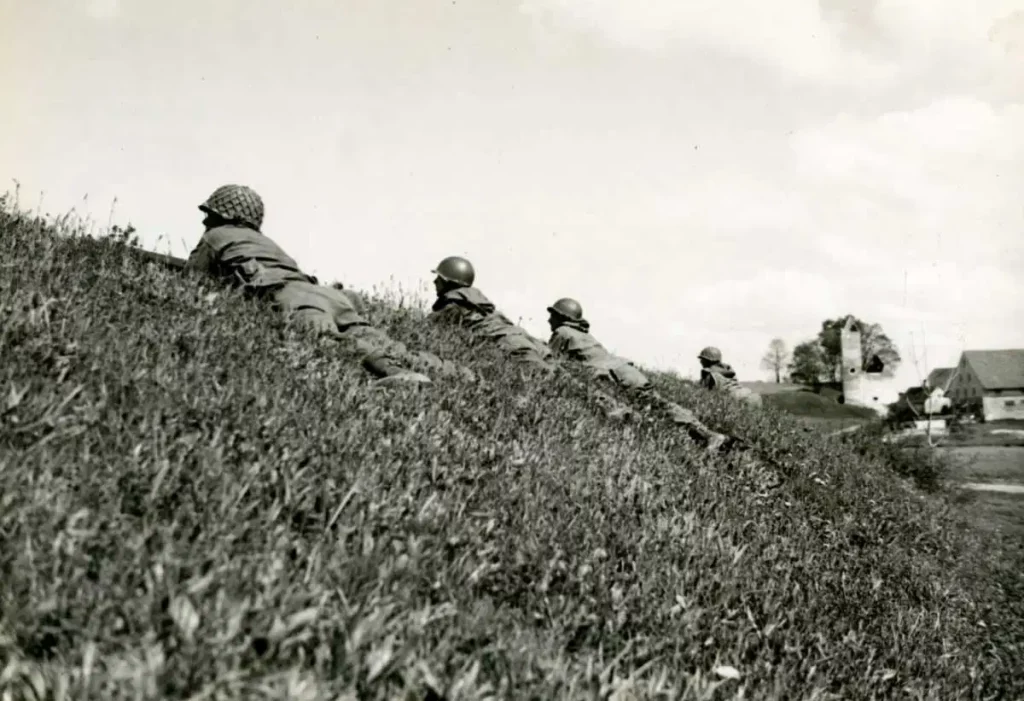
When U.S. troops liberated Dachau in April 1945, the photographs captured horror. But a lesser-known story came from an unnamed soldier, part of the clean-up detail.
He spent hours wrapping the bodies in blankets—not to sanitize, but to show some shred of dignity.
When asked why, he replied:
“If this were me, I wouldn’t want the world to see me like this.”
He knew the pictures would be public. But he covered the faces anyway.
He said it wasn’t for them.
It was for his own soul.
One More Candle
In a small synagogue in Ukraine, a Jewish woman returned after the war, alone. Her family had perished. The Torah scrolls had been burned.
Still, each Friday, she lit a candle.
Locals whispered about her. Some pitied her. Others mocked.
One winter evening, a group of orphaned children—Polish, German, Roma—found her lighting the candle again. She invited them in. She sang them songs in Yiddish. She gave them warm bread.
She told no one.
But one of the children later wrote in a memoir:
“That was the first moment I felt safe again. And I was only eight.”
Quiet Doesn’t Mean Small
These stories weren’t parades. They weren’t battles.
They were one hand offering water. One grave dug. One bowl of soup passed through a hole in the wall.
There were thousands more like them—too quiet to be in textbooks, too humble for medals. But maybe that’s what made them matter most.
War stripped people down. But some still chose kindness, even when it hurt.
Even when no one was looking.
Let us remember them, not just for what they did — but for the fact that they didn’t have to.
